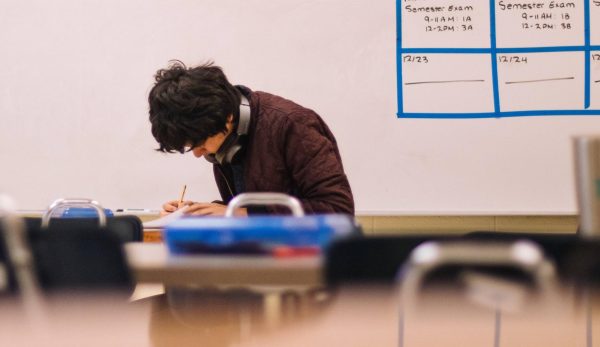Finals: Study tips and techniques
Final exams will take place next week on Dec. 14-Dec. 16 with no exemptions avaliable.
December 9, 2022
With midterms starting next week, students have begun their preparations for the big exams. Here are some study tips to help ensure the desired grade.
Tips
The No. 1 way to ensure success is to allow ample time to study, so don’t cram in all your studying the night before.
According to the American Psychological Association, although studying the night before might allow for a good score, the knowledge will not be retained. So, as tempting as it might be to wait until the last minute, you might end up regretting it in the future.
Allowing breaks during studying is also something that is extremely important. The UW School of Medicine Department of Rehabilitation reports some events that happen while people sleep can also happen while the brain rests. This means taking breaks while studying can replenish your brain and create better information retention.
Finding an environment that increases focus and concentration is so important when studying. Whether it be the silence of the library or the quiet chatter and smell of the coffee at Starbucks, everyone has their preferences on study environments. So find the place that you can work best in and put yourself into that environment.
Techniques
One way to study involves a way building long-term memory. For this technique begin by reading through all your notes and resources thoroughly, trying to remember the most you can.
Once you feel confident, grab a piece of paper and write down everything you remember. You can repeat this process over and over until the information comes to mind with ease.
This technique is great because it can be translated into any subject. Whether it be concepts in science class or formulas for math, it can be applied.
The next method is for people who tend to lack the motivation to start studying. You’ll start by setting a five to ten-minute timer and studying for that time. When the timer goes off, set another one for a smaller amount of time and use that time to take a break.
After the break ends, begin studying again. You can repeat this process for as long as it takes to finish, but you might end up not needing a break once you get into a good flow.
When you copy notes straight from the board into a notebook, it can be challenging to interpret what the information means. A great way to counteract this is to take all the notes and rewrite them in your own words. This will allow you to really comprehend what the information is saying, making it easier to recall.
If something just isn’t making sense no matter how much you re-read your notes, try typing the topic into YouTube. Hearing someone else explain the topic in their words might click better in your brain than the person who initially told you about it. Nowadays, there is a video for everything on the internet; you just have to search for it.
Finally, if something just isn’t making any sense, ask for help. Your teachers are there to help you, and most are more than willing to answer any question you have. Whether you simply send them an email or go into tutoring, having some one-on-one time with your teacher can drastically change your learning and understanding.
















